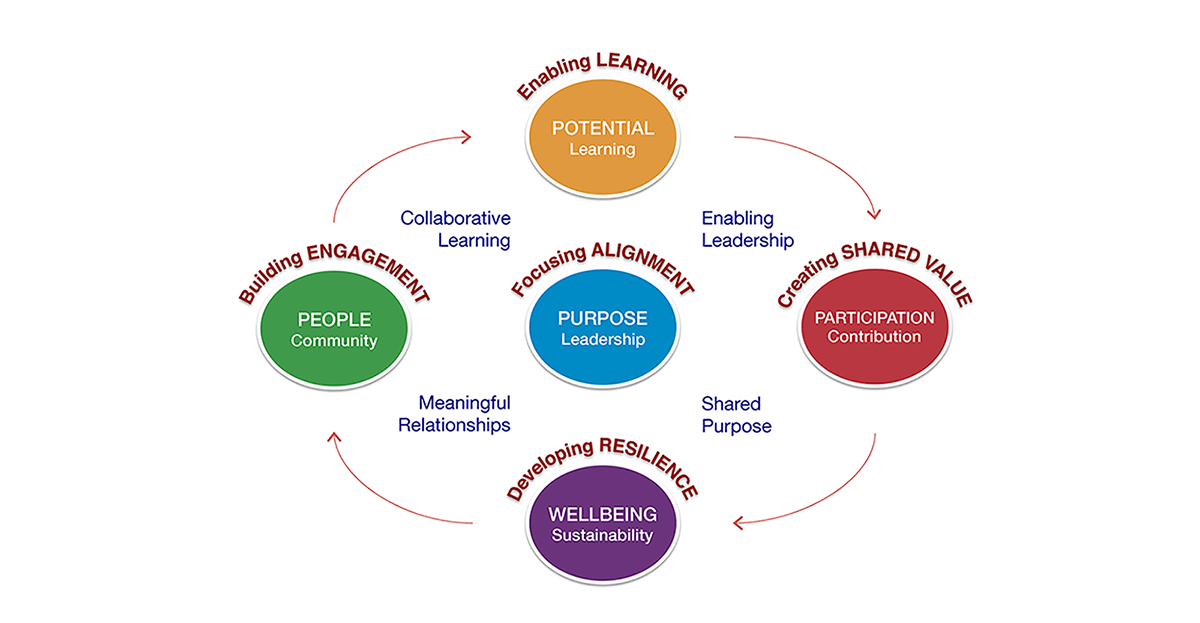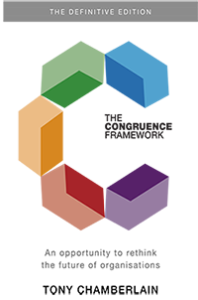Organisational congruence is a state of harmonious alignment. It occurs when all an organisation’s stakeholders are happily engaged in co-creating their future together. Achieving this congruence, or alignment, requires the organisation’s stakeholders to operate as a collaborative community of purpose – a community with a shared purpose and a commitment to generating outcomes that represent equitable-shared value for all its members. The community’s shared purpose not only provides the primary source of its identity and coherence, it also enables and encourages conversations that build meaningful relationships – the ‘social ties’ that interconnect the community and facilitate its collective action. Sustaining organisational congruence is dependent on leadership and learning. The culture of collaborative learning, which enables the organisational community to embrace its difference and diversity and welcome opportunities for change is fostered by enabling leadership – shared leadership that is based on an ethic of ‘selfless service to others’.
Individual congruence is a state of being joyful – a wonderful entanglement of tranquil peace, abiding happiness and unconditional love. Congruent individuals are people who live their lives ‘on purpose’. They create an authentic presence within their communities that integrates and aligns who they are with what they do. These people have a learning orientation that welcomes difference and diversity and continually seeks opportunities for personal development and renewal. They develop and sustain their communities of interest by building meaningful relationships that are based on selfless service and the generation of mutual value.
The Congruence Framework is thinking or organising framework that has been designed to help organisations, communities and individuals to become more congruent. Its five factors, which embrace the essential conditions and attitudes that enable congruence, provide a focus for people to think about how they can organise their personal, community or organisational operating models (or lives) in a way that promotes congruence. The five factors are:
- A focus on purpose (why do we exist?) is the lynchpin of the framework, the central factor that underpins the other four factors.
- A focus on people (who is our community?) is concerned with the notion of community – the idea that organisations should behave as communities of stakeholders and that individuals should choose to participate in communities where they can have an authentic presence.
- A focus on potential (do we have a learning orientation?) is about the importance of developing a culture of collaborative (and personal) learning to enable the positive integration of difference, diversity and change.
- A focus on participation (what is our contribution?) is about the need to co-create equitable-shared value – the purposeful win-win outcomes that are fundamental to sustaining organisational and individual congruence.
- And a focus on wellbeing (are we sustainable?) reminds us that organisational sustainability is is about creating outcomes that enhance the social, cultural, economic and ecological wellbeing of the individuals that comprise the organisation’s stakeholder communities.
To understand more about how this framework and how it could be applied to help organisations and individuals become more congruent, please refer to my book The Congruence Framework and ‘look inside’.


